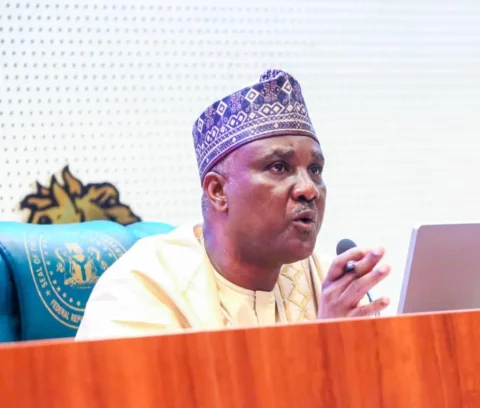Two prominent education experts, Dr. Dallat Gershom Danglah and Alex Maiyanga, have advised education authorities to approach the proposed implementation of computer-based testing (CBT) for WAEC and NECO examinations in secondary schools with caution.
Speaking during the annual Speech and Prize Giving Day of Eagles Academy in Mararaba, Karu, Nasarawa State, the duo highlighted several structural and logistical challenges that could hinder the smooth execution of CBT across the country. They emphasised the need for a more measured and well-planned approach to ensure that students are not disadvantaged by the transition.
Dr. Danglah, an Associate Professor in the Department of History and Diplomatic Studies at Nasarawa State University and the event’s guest speaker, acknowledged that CBT aligns with international best practices. However, he noted that many public secondary schools in Nigeria currently lack the necessary infrastructure, including computers and stable electricity, to effectively adopt the system.
While referencing the success of CBT in the Joint Admissions and Matriculation Board (JAMB) examinations, Dr. Danglah argued that replicating the same approach for WAEC and NECO without sufficient groundwork would be premature. He expressed concern over the digital divide, stating that many students lack basic computer literacy, and that some schools are not adequately equipped to facilitate digital examinations. He also raised the issue of erratic power supply, pointing out that disruptions during timed CBT exams could significantly affect performance and fairness.
Despite these concerns, Dr. Danglah acknowledged the potential benefits of CBT, including reducing the workload of teachers in marking scripts and limiting bias in the grading process.
Also speaking at the event, Alex Maiyanga, proprietor of Eagles Academy and former lecturer at the University of Maiduguri and Nasarawa State University, underscored the need for thorough planning before rolling out CBT on a national scale. Although his school is well-resourced with computers and capable of supporting digital learning, he maintained that infrastructure alone is not enough.
Maiyanga called for transparency and stakeholder engagement, urging policymakers to present a clear and actionable framework for implementation. He warned against adopting policies without fully understanding the implications, likening it to “diving into deep water without knowing the depth.”
Renowned for his commentary on Nigerian education and governance, Maiyanga stressed that while technology should be embraced, it must be introduced thoughtfully, ensuring no student is left behind due to systemic limitations.





